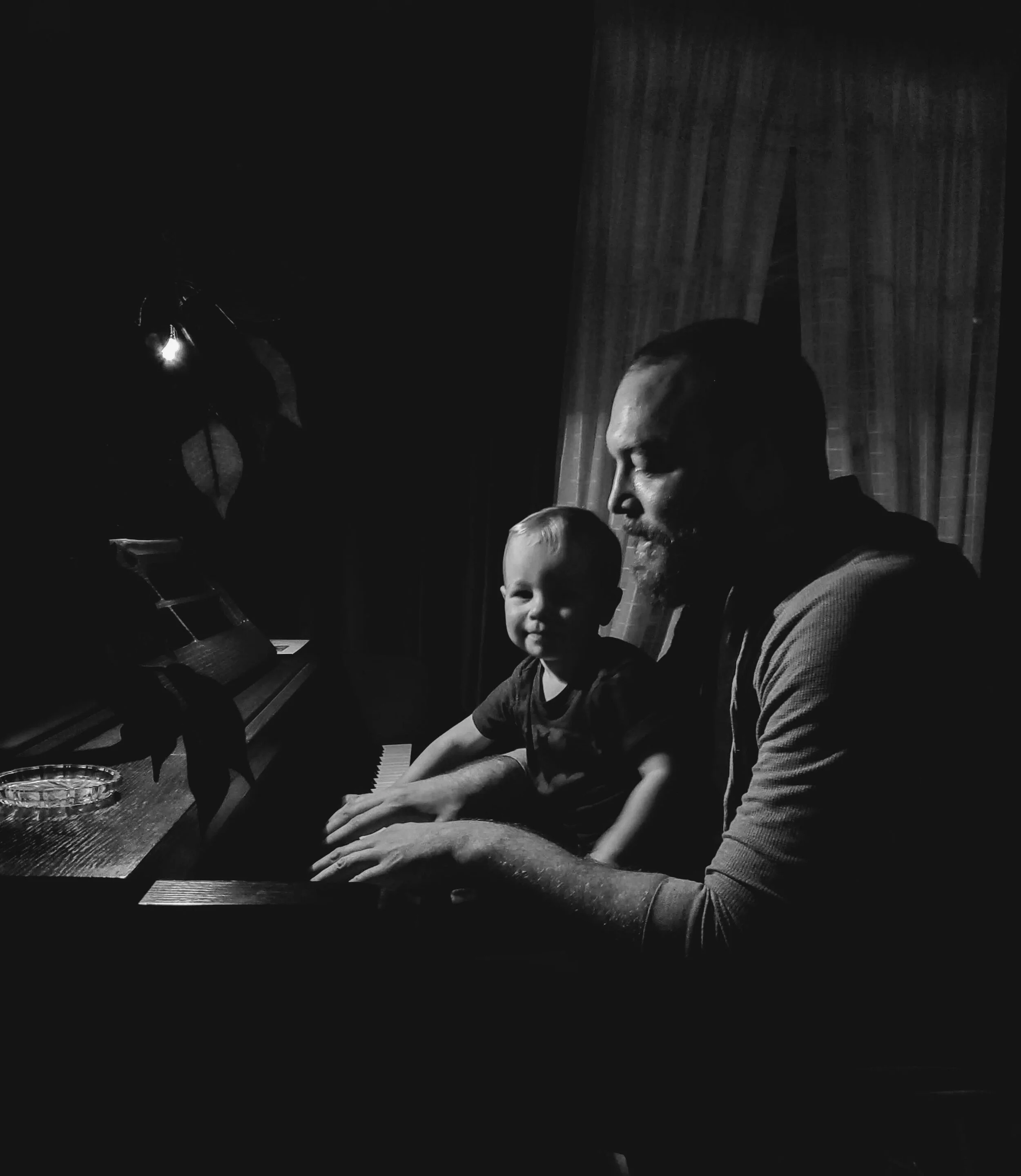The Tale of Jesse Cooney
Early Years
Jesse Marshall Cooney, a Quebec native, spent most of his adolescent years in the Greater Toronto Area. At a very young age, unprompted, Jesse began to show an interest and an aptitude for music of all genres. After attending an unknowingly life-altering performance of The Phantom Of the Opera where he watched the organist in the pit for the entire show, he decided that this, music, was something he needed to learn. Jesse was blessed to have supportive parents, who did not hesitate to buy him his first keyboard. Within weeks of this purchase, Jesse had begun teaching himself his favorite pieces of music by ear - which at the time, were dominated by the classical, jazz, and musical theatre genres.
Given that his family had virtually no understanding of music education, his talents remained hidden behind closed doors. His grandmother, who had had some formal training, decided to teach him some basic music-reading skills. This knowledge opened the door to a whole world of possibilities for the young Jesse.
Later that year, when a 7-year-old Jesse registered to play a piece of music at his school's talent show, he was finally noticed. It was his performance of Ludwig van Beethoven’s Fur Elise that caught the ear of the school’s music teacher. Despite her persistence, the stubborn young Jesse declined her invitation to study privately. After all, as a young Jesse so eloquently put it, “why would I want to be forced to play music that I didn’t like?”.
Education
Jesse with his son Gage
In middle school, he began learning to play other instruments such as the saxophone, trombone, and trumpet. His orchestra teachers provided him with basic music theory and history lessons along the way which only fuelled his passion more. He would test his knowledge by putting on large orchestral works and attempting to script them by instrument. Jesse was asked to participate in what was then called the Halton Junior Jazz Ensemble as their pianist. This was an elite group of musicians aged 12 to 15 that were hand-selected by the board of education. They toured and were invited to various workshops led by industry greats. This is where he learned the art of improvisation and “riffing”. Playing wind, brass, and keyboard instruments while exploring his self-guided scripting is how he finished his remaining years in middle school and high school earning him the award “The M. M. Robinson Contribution To The Arts”.
It was his high school music teacher, Miss Heather Wilcox (nee King), that gave him the next big push that he needed. When deciding which paths he would pursue for his post-secondary education, he mentioned to her that Physics and Applied Mathematics were the front runners. It was her immediate guffaw that inspired him to reconsider. They discussed this as they walked into a practice room where she demanded to hear him play a few pieces. By the time he had concluded the program of Bach, Mozart, and Rachmaninoff, it was settled - he was to study music.
At the University of Western Ontario (now Western University), Jesse became well-known quite quickly. As this was his first experience with formal education in higher-level music, he soaked up every second of it. After his first year, he was one of only two students accepted to the Piano Performance stream and was immediately given a scholarship reserved for those showing promise in Piano Performance. Consistently at the top of his class in Music Theory and Performance, Jesse knew this was his calling. Under the tutelage of Professor John-Paul Bracey and Stephan Sylvestre, Jesse explored and developed a proficiency in Romantic and Contemporary works.
After a recital of French Piano Music, Jesse was invited to study in France with private instructor Jean-Paul Sevilla. This is where he completed an in-depth study of piano works by composers Franz Liszt and Sergei Prokofiev.
Professional Life
Upon graduating, Jesse earned his first professional teaching position at the Merriam School of Music in Mississauga, Ontario. He quickly transitioned to the Royal Conservatory of Music where he worked his way through the ranks and became well versed in the RCM’s prolific examination curriculum. Here, he was asked to be on a team where, in partnership with the Carnegie Institute in New York City, New York, they would launch the United States’ first nationwide music assessment program. He toured the United States educating music teachers of various levels on the value of third party assessment and all that this curriculum had to offer.
Jesse currently resides in Calgary, Alberta where he has planted roots and has begun his virtual music teaching studio! It is believed that his self-guided beginnings in music have inspired his modern view of music education, and why he has welcomed a new and exciting approach to learning in his studio!


